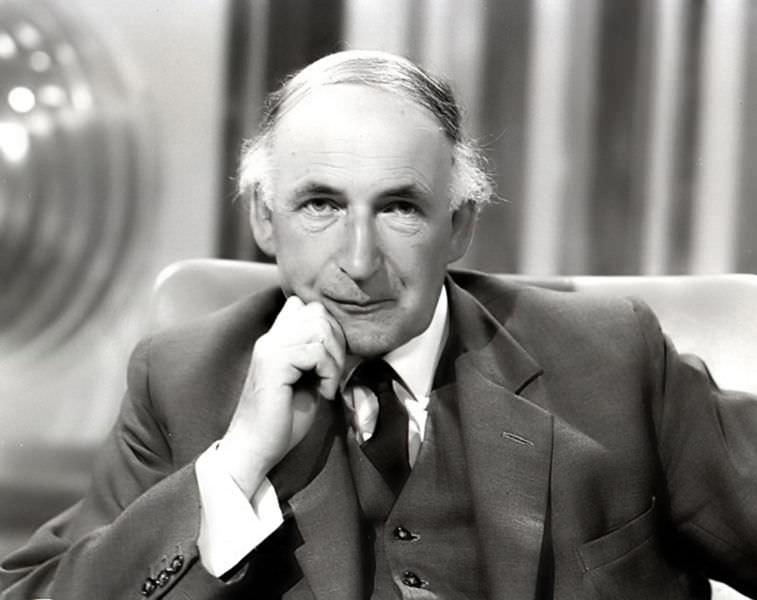Caption: Sir Bernard Lovell. Credit: Jodrell Bank, University of Manchester
Sir Bernard Lovell OBE FRS, Emeritus Professor of Radio Astronomy, died yesterday, 6th August 2012 at the age of 98. He was the founder and first Director of The University of Manchester’s Jodrell Bank Observatory in Cheshire from 1945 to 1980.
Bernard Lovell was born in Gloucestershire on 31 August, 1913 and studied Physics at The University of Bristol, gaining his PhD in 1936. He then went to work at The University of Manchester researching cosmic rays. This work was interrupted during World War II when he worked in Telecommunications, leading the team that developed H2S radar for which he was awarded the OBE in 1946. He then returned to The University of Manchester. During his research he showed that radar echoes could be obtained from daytime meteor showers as they entered the Earth’s atmosphere and ionised the surrounding air.
He moved his research out to the university’s botany site at Jodrell Bank in late 1945 to avoid background interference from the Electric trams in Manchester. Here he worked with engineer Sir Charles Husband to construct the 76-metre Lovell Telescope, the largest steerable radio telescope in the world at the time, and still the third largest. The iconic telescope was completed in 1957 and within days it tracked the rocket that carried Sputnik 1 into orbit. Today the telescope is part of the e-MERLIN array of seven radio telescopes spread across the UK and European VLBI Network interferometric arrays of radio telescopes. Later this year the international headquarters of The Square Kilometre Array (SKA) the world’s largest telescope will move to Jodrell Bank.
Sir Bernard wrote many books about Jodrell Bank and astronomy, including ‘The Story of Jodrell Bank’ published in 1968. He was knighted for his contribution to the development of radio astronomy in 1961 and in 1981 was awarded the Gold Medal of the Royal Astronomical Society.
In 2009 Lovell claimed that during the cold war, when Jodrell Bank was being used as part of an early warning system for nuclear attacks, the Soviets allegedly tried to kill him with a lethal radiation dose. Lovell wrote a full account of the incident with instructions that it be published after his death.
Away from science he was also an accomplished musician, playing the church organ, a keen cricketer and a renowned arboriculturist. He is survived by four of his five children, fourteen grandchildren and fourteen great-grandchildren.
The University of Manchester paid tribute to him saying “Sir Bernard’s legacy is immense, extending from his wartime work to his pioneering contributions to radio astronomy and including his dedication to education and public engagement with scientific research. A great man, he will be sorely missed.”
A book of condolence has been opened at the observatory’s Discovery Centre and online.
Read more here


A great man who struggled against a lot of issues to see the Lovell Radio Telescope project through to completion. The telescope is still an impressive sight standing around 90 metres (or ~270 ft) tall – and if you’re ever driving through the Cheshire countryside, the visitor centre (which only opened quite recently) is well worth a visit. It’s the only place I know where you can listen to the big bang and grab a great slice of key lime pie!
One thing I didn’t learn until quite recently was that this telescope was practically the only instrument available in the ‘Western World’ that could confirm the launch – or rather the orbiting radio signal from – Sputnik, back in the day.
Yet here we are in 2012 and the kids are complaining about the lack of full-colour multi-megapixel images within seconds of Curiosity landing on Mars!
Sir Bernard, Thank You!
tinyurl.com/cyk9xz2
e